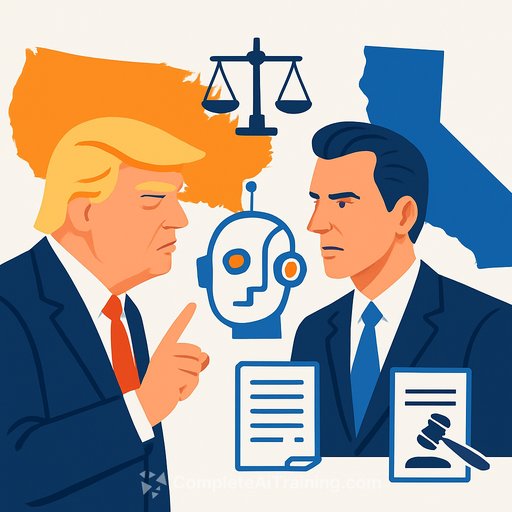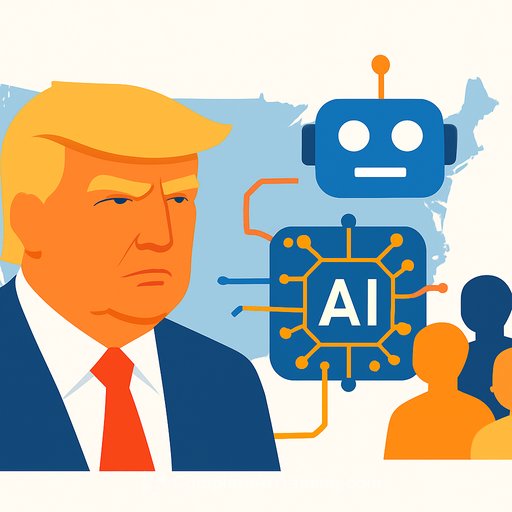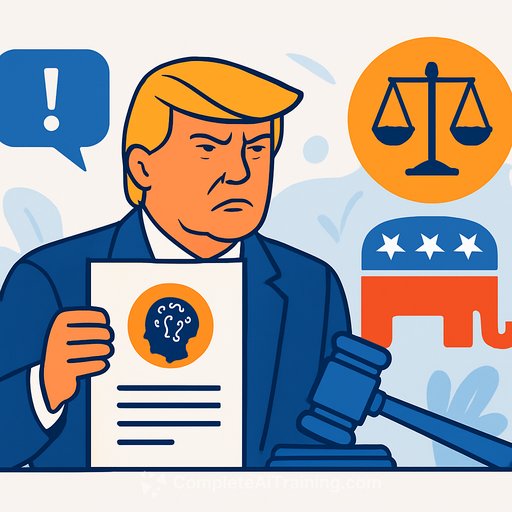Major News Publishers Clash with AI Companies Over Copyright and Licensing
A growing number of news publishers are taking legal action against AI companies for unauthorized use of their content, while many others have opted to sign licensing deals. This divide highlights the tension between protecting intellectual property and embracing new AI technologies.
Legal Actions Against AI Platforms
Several prominent news organizations have filed lawsuits against AI companies, alleging copyright infringement and unauthorized content scraping. Key lawsuits include:
- Yomiuri Shimbun vs Perplexity: The Japanese publisher alleges Perplexity used over 119,000 articles and images without permission, seeking damages of approximately £9.9 million plus lost advertising revenue.
- Ziff Davis vs OpenAI: The US-based publisher claims OpenAI has "intentionally and relentlessly" used its copyrighted content without authorization.
- News/Media Alliance members vs Cohere: A coalition of US publishers accuses Canadian AI startup Cohere of unauthorized scraping and verbatim copying of paywalled content.
- Indian News Publishers vs OpenAI: Several leading Indian publishers have joined a lawsuit asserting that OpenAI’s scraping threatens their copyrights.
- Coalition of Canadian outlets vs OpenAI: Major Canadian news companies allege OpenAI infringed copyright by scraping and profiting from their content without permission.
- News Corp vs Perplexity: News Corp subsidiaries, including The Wall Street Journal, accuse Perplexity of "massive freeriding" and seek removal of their content from its index.
- Mumsnet vs OpenAI: The UK parenting forum initiated legal action after OpenAI allegedly scraped its extensive user-generated content without consent.
- The Center for Investigative Reporting vs OpenAI and Microsoft: This non-profit publisher alleges exploitative use of its content without compensation.
- Eight Alden Global Capital newspapers vs OpenAI and Microsoft: Eight US daily newspapers demand recognition of rights and compensation for unauthorized use of their reporting.
- The Intercept, Raw Story, and AlterNet vs OpenAI: These progressive digital outlets filed lawsuits over the use of their journalism to train ChatGPT.
- The New York Times vs OpenAI and Microsoft: The Times seeks damages and destruction of AI models trained on its content, arguing that unauthorized use diverts readers and revenue.
- Getty Images vs Stability AI: Getty Images has taken legal action over image use by Stability AI.
Publishers Signing Licensing Deals with AI Companies
On the other hand, many publishers have formed partnerships with AI firms, licensing their content for training AI models or integrating AI technology into their own products. Some notable agreements include:
- Gannett – Perplexity
- Conde Nast and Hearst – Amazon
- More than 500 publications – Prorata.ai
- The New York Times – Amazon
- The Washington Post – OpenAI
- Shutterstock – Synthesia
- News/Media Alliance – Prorata.ai
- Guardian – OpenAI
- Schibsted – OpenAI
- Agence France-Presse – Mistral
- Associated Press – Google and OpenAI
- Axios – OpenAI
- Future – OpenAI
- The Independent, LA Times, Lee Enterprises – Perplexity
- DMG Media, Guardian, Sky News, Prospect – Prorata.ai
- Reuters – Meta
- FT, Reuters, Axel Springer, Hearst Mags, USA Today Network – Microsoft
- Time, Der Spiegel, Fortune, Texas Tribune – Perplexity
- Vox Media, The Atlantic, News Corp, Dotdash Meredith – OpenAI
- Financial Times – OpenAI
- Le Monde and Prisa Media – OpenAI
These agreements often include content licensing for AI training and collaboration on AI-driven products, with terms typically promising citation and financial compensation. For instance, News Corp’s deal with OpenAI reportedly exceeds $250 million over five years.
BBC’s Threatened Action Against Perplexity
While not a formal lawsuit, the BBC has publicly threatened Perplexity over alleged unauthorized use of its content in Perplexity’s AI model. The BBC seeks an injunction, deletion of its content, and financial compensation. Perplexity has denied the allegations, criticizing the broadcaster’s stance and defending its technology use.
Industry Perspectives and Challenges
Not all publishers have taken a legal or licensing route. Some, like Reach plc in the UK, advocate for industry-wide unity before engaging with AI companies to avoid fragmented deals that could undermine content value.
Meanwhile, companies like Apple are reportedly exploring licensing deals with publishers, though no agreements have been made public. Many publishers remain in negotiation phases or are considering legal options.
Detailed Cases of Note
Yomiuri Shimbun’s Lawsuit Against Perplexity
This marks the first major Japanese media lawsuit against an AI firm. Yomiuri alleges extensive unauthorized use of its articles and seeks damages for copyright infringement and lost advertising revenue. Perplexity acknowledged the issue and is investigating the claims.
Ziff Davis vs OpenAI
Ziff Davis, owner of brands like CNET and IGN, accuses OpenAI of unauthorized use of its content. OpenAI maintains its models rely on publicly available data and fair use principles.
News/Media Alliance vs Cohere
A group of US publishers charge Cohere with scraping paywalled content without permission and producing verbatim or distorted reproductions, undermining publisher revenue and credibility.
Indian News Publishers’ Legal Action
Several major Indian publishers have joined a lawsuit asserting OpenAI’s content scraping violates their copyrights, emphasizing the lack of localized licensing agreements.
Canadian Publishers’ Coalition
Leading Canadian news organizations filed suit against OpenAI, highlighting the significant investment in original reporting and demanding enforcement of copyright laws.
News Corp’s Dual Approach
While suing Perplexity for infringing copyrights, News Corp has separately licensed content to OpenAI, illustrating varied strategies within the industry.
Mumsnet’s Legal Challenge
Mumsnet has challenged OpenAI for scraping its vast user-generated content, emphasizing the unique value and the risks of AI-generated content replacing authentic community insights.
The Center for Investigative Reporting
This non-profit publisher accuses OpenAI and Microsoft of exploiting its content without permission, warning about the impact on independent journalism.
Alden Global Capital Newspapers
Eight newspapers owned by Alden have sued OpenAI and Microsoft, stressing the importance of fair compensation and the dangers of AI-generated misinformation attributed to their brands.
The Intercept, Raw Story, and AlterNet
These outlets contend that OpenAI’s training on their journalism violates copyright and undermines the value of their work.
The New York Times
The Times’ lawsuit demands destruction of AI models trained on its content and compensation for lost revenue, marking a landmark case in the debate over AI and content rights.
Looking Ahead
The legal landscape is evolving as courts will need to interpret “fair use” in this new context. Whether through lawsuits or licensing agreements, news publishers are asserting their rights to protect original content and maintain viable business models.
For legal professionals monitoring AI and intellectual property intersections, these cases set important precedents on how copyrighted content is used in AI training and deployment.
Stay updated with ongoing developments in AI and media rights on Complete AI Training.
Your membership also unlocks:






